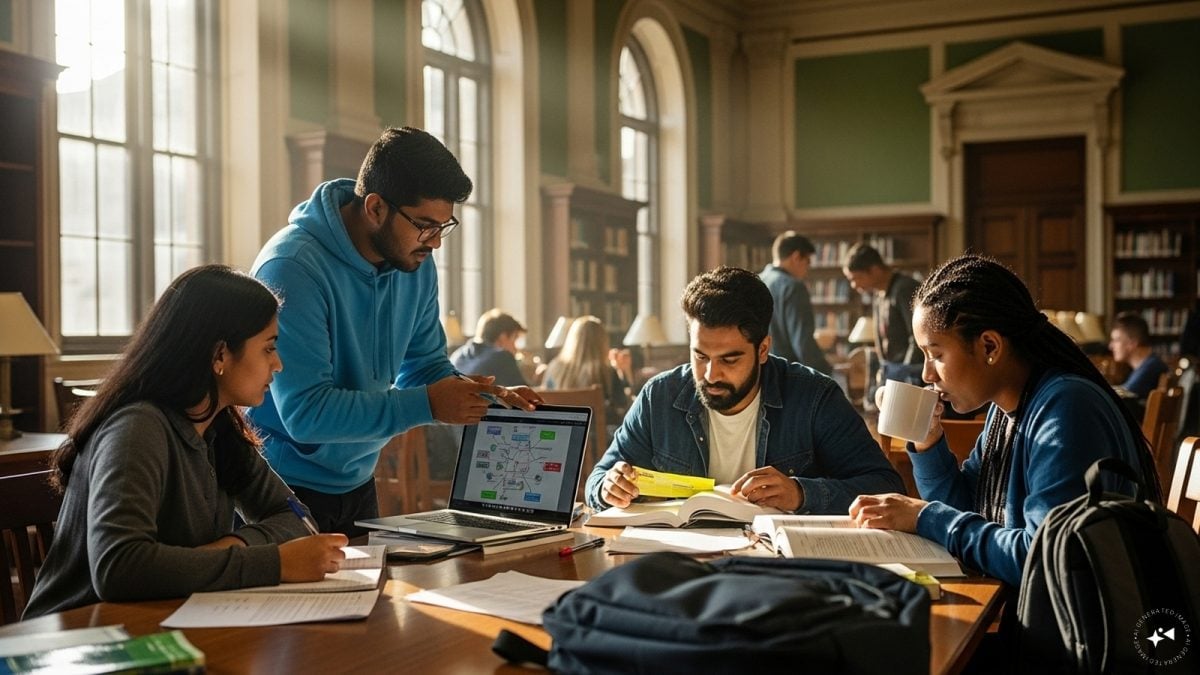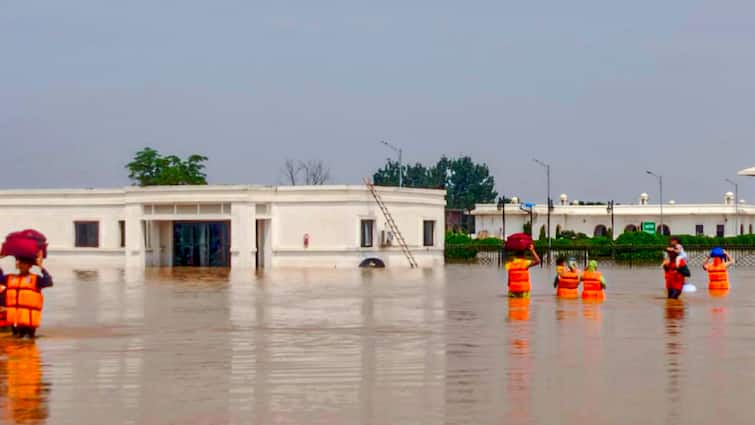Last Updated:
The changes proposed by the US Department of Homeland Security will make it harder for international students, exchange visitors and foreign journalists to study or work in the US.

The latest move by the Trump administration is expected to disproportionately impact Indian students. (AI-Generated)
In another setback for international students in the United States, the Trump administration has proposed a rule to tighten regulations on F-1 visas. The change could restrict the duration of stay for visa holders, including foreign students, and impose additional screening requirements.
The changes proposed by the US Department of Homeland Security are expected to make it harder for international students, exchange visitors and foreign journalists to study or work in the US. The proposed changes also include restrictions on visa duration or Optional Practical Training (OPT) grace period.
Recommended Stories
As per the new F-1 visa rules, international students will only be permitted to transfer colleges or change courses after finishing one year of study. This will impact Indian students considering fall admission to the US, as the rule is expected to come into effect by next month or October.
Undergraduate students studying in the US on an F-1 visa will not be able to change their programme or major during the first year of study, with limited exceptions.
Students who have completed a programme at a certain level cannot pursue another programme at the same or lower level while holding an F-1 visa. Once admitted, graduate students on the same visa will not be permitted to change their programme or field of study in any manner.
Why Is US Ending ‘Duration Of Status’?
The Homeland Security Department has also proposed to end the long-standing “duration of status” framework and replace it with fixed admission periods. Under the “duration of status”, students can remain in the US for as long as they maintain their student status.
The new rule seeks to establish a fixed four-year period for F-1 and J-1 visa holders. If a student visa holder wishes to extend their stay beyond this period, they will have to apply directly to the DHS for an extension of stay (EOS).
The proposed rule also gives F category visa holders only 30 days to leave the US after the end date of their programme, as compared to the earlier period of 60 days. The DHS has argued that these steps would curtail “visa abuse” and increase the administration’s ability to properly vet and oversee these individuals.
“For too long, past Administrations have allowed foreign students and other visa holders to remain in the US virtually indefinitely, posing safety risks, costing untold amounts of taxpayer dollars, and disadvantaging US citizens,” said a DHS spokesperson.
“This new proposed rule would end that abuse once and for all by limiting the amount of time certain visa holders are allowed to remain in the US, easing the burden on the federal government to properly oversee foreign students and their history.”
ALSO READ: Time To Wake Up From The American Dream? How Trump’s H1-B Visa Changes May Affect Indians
How Will It Impact Indian Students?
The proposed changes introduce significant uncertainty for F-1 students, particularly those enrolled in long-term academic programmes or participating in OPT programmes. Under the new rules, students can no longer rely on continuous enrollment to guarantee their stay for the full duration of their studies. Over half of the international students studying in the US are from India and China.
Similarly, J-1 exchange visitors – including scholars and researchers – could face stricter time constraints, potentially disrupting already tight schedules for academic collaborations and research initiatives. Furthermore, foreign media representatives would be eligible for an extension period of up to 240 days, but no longer than the length of the temporary activity or assignment.
Additionally, foreign students would be required to apply for authorisation to extend their stay with the United States Citizenship and Immigration Services (USCIS), therefore requiring regular assessments by DHS to check their conduct, immigration history or any affiliation with anti-American beliefs.
About the Author

Aveek Banerjee is a Senior Sub Editor at News18. Based in Noida with a Master’s in Global Studies, Aveek has more than three years of experience in digital media and news curation, specialising in international…Read More
Aveek Banerjee is a Senior Sub Editor at News18. Based in Noida with a Master’s in Global Studies, Aveek has more than three years of experience in digital media and news curation, specialising in international… Read More
Loading comments…
Read More



)
